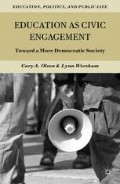Abstract
Perhaps no movement in American education remains more riddled with contradiction than the junior college movement, the birth and rapid spread of two-year colleges during the early twentieth century. Junior colleges welcomed the working class and provided affordable education at convenient locations (see Cohen and Brawer; Dougherty; Ratcliff). The new and democratic institutions largely failed to deliver on their promise of transferring students to four-year colleges and universities, however, and instead created a low-prestige campus where guidance counselors and vocational programs micromanaged the ambitions of blue-collar students (see Brint and Karabel; Clark; Karabel; Shor). Despite these rich contradictions, scholars in rhetoric and composition have largely overlooked the junior college movement as a site for historical narrative. Those interested in the gatekeeping functions of higher education—the ways colleges and universities transmit hegemonic values to students, and the problematic allegiance between education and corporate America—have much to learn from the history of the two-year college. I am suggesting, first, that historians of rhetoric and composition turn their attention to sites of contradiction, diversity, and class conflict—sites such as the junior college movement. Second, I am proposing that we create historical narratives that vigilantly ascribe agency to the individuals and collectives who hold the cultural power to shape institutions and movements.
Access this chapter
Tax calculation will be finalised at checkout
Purchases are for personal use only
Preview
Unable to display preview. Download preview PDF.
Works Cited
Althusser, Louis. “Ideology and Ideological State Apparatuses (Notes Toward an Investigation).” Lenin and Philosophy and Other Essays. Trans. Ben Brewster. New York: New Left, 1971. 121–73.
Baker, George A. III, ed. A Handbook on the Community College in America: Its History, Mission, and Management. Westport, CT: Greenwood, 1994.
Barrett, James R. “Boring from Within and Without: William Z. Foster, the Trade Union Educational League, and American Communism in the 1920s.” Labor Histories: Class, Politics, and the Working Class Experience. Ed. Eric Arnesen et al. Urbana: U of Illinois P, 1998. 309–39.
Bobbitt, Franklin. “Are There General Principles that Govern Junior-College Curriculum?” The Junior College Curriculum Vol. I. Ed. William S. Gray. Chicago: U of Chicago P, 1929. 14–27.
Brint, Steven, and Jerome Karabel. The Diverted Dream: Community Colleges and the Promise of Educational Opportunity in America, 1900–1985. New York: Oxford UP, 1989.
Charters, W.W. Curriculum Construction. New York: Macmillan, 1923.
—. Teaching of Ideals. New York: Macmillan, 1928.
Clark, Burton R. “The ‘Cooling-Out’ Function in Higher Education.” American Journal of Sociology 65 (1960): 569–76.
Cohen, Arthur M., and Florence B. Brawer. The American Community College. 3rd ed. San Francisco: Jossey-Bass, 1996.
Coyle, Irvin F. “Developing Social Competence.” Junior College Journal 9 (1938): 18–21.
Cubberley, Ellwood P. Changing Conceptions of Education. Boston: Houghton, 1909.
Davenport, E[ugene]. Education for Efficiency: A Discussion of Certain Phases of the Problem of Universal Education with Special Reference to Academic Ideals and Methods. Boston: Heath, 1911.
DeGenaro, William. “Social Utility and Needs-Based Education: Writing Instruction at the Early Junior College.” Teaching English in the Two-Year College 28 (2000): 129–40.
Denworth, Katharine M. “Education for Social Intelligence.” Junior College Journal 8 (1937): 55–56.
—. “Indoctrination for a New Social Order?” Junior College Journal 8 (1937): 163–64.
Dougherty, Kevin J. The Contradictory College: The Conflicting Origins, Impacts, and Futures of the Community College. Albany: State U of New York P, 1994.
Drost, Walter H. David Snedden and Education for Social Efficiency. Madison: U of Wisconsin P, 1967.
Dubofsky, Melvyn. Hard Work: The Making of Labor History. Urbana: U of Illinois P, 2000.
Eaton, Judith S. “The Fortunes of the Transfer Function: Community Colleges and Transfer, 1900–1990.” Baker 28–40.
Eells, Walter Crosby. The Junior College. Boston: Houghton, 1931.
Foucault, Michel. Discipline and Punish: The Birth of the Prison. 1975. Trans. Alan Sheridan. New York: Vintage, 1995.
Frye, John H. The Vision of the Public Junior College, 1900–1940. Westport, CT: Greenwood, 1992.
Gleazer, Edmund J. “Evolution of Junior Colleges into Community Colleges.” Baker 17–27.
Gould, Stephen Jay. The Mismeasure of Man. New York: Norton, 1981.
Gramsci, Antonio. Selections from the Prison Notebooks. Ed. and trans. Quintin Hoare and Geoffrey Nowell Smith. New York: International, 1971.
Hancock, Leonard J. “Does the Junior College Make Good Citizens?” Junior College Journal 4 (1934): 225–26.
Holt, Mara. “Dewey and the ‘Cult of Efficiency’: Competing Ideologies in Collaborative Pedagogies of the 1920s.” JAC 14 (1994): 73–92.
Karabel, Jerome. “Community Colleges and Social Stratification.” Harvard Educational Review 42 (1972): 521–62.
Kefhauver, Grayson F. “The Functions of Guidance at the Junior College Level.” Gray 104–19.
Koos, Leonard V. The Junior-College Movement. Boston: Ginn, 1925.
Lukács, Georg. History and Class Consciousness: Studies in Marxist Dialectics. Cambridge: MIT P, 1968.
Rabinbach, Anson. The Human Motor: Energy, Fatigue, and the Origins of Modernity. New York: Basic, 1990.
Ratcliff, James L. “Seven Streams in the Historical Development of the Modern American Community College.” Baker 3–16.
Shor, Ira. Critical Teaching and Everyday Life. Chicago: U of Chicago P, 1987.
Zinn, Howard. A People’s History of the United States. New York: Harper, 1980.
Editor information
Copyright information
© 2012 Gary A. Olson and Lynn Worsham
About this chapter
Cite this chapter
DeGenaro, W. (2012). Class Consciousness and the Junior College Movement: Creating a Docile Workforce. In: Olson, G.A., Worsham, L. (eds) Education as Civic Engagement. Education, Politics,and Public Life. Palgrave Macmillan, New York. https://doi.org/10.1057/9781137021052_4
Download citation
DOI: https://doi.org/10.1057/9781137021052_4
Publisher Name: Palgrave Macmillan, New York
Print ISBN: 978-1-137-03369-7
Online ISBN: 978-1-137-02105-2
eBook Packages: Palgrave Education CollectionEducation (R0)

